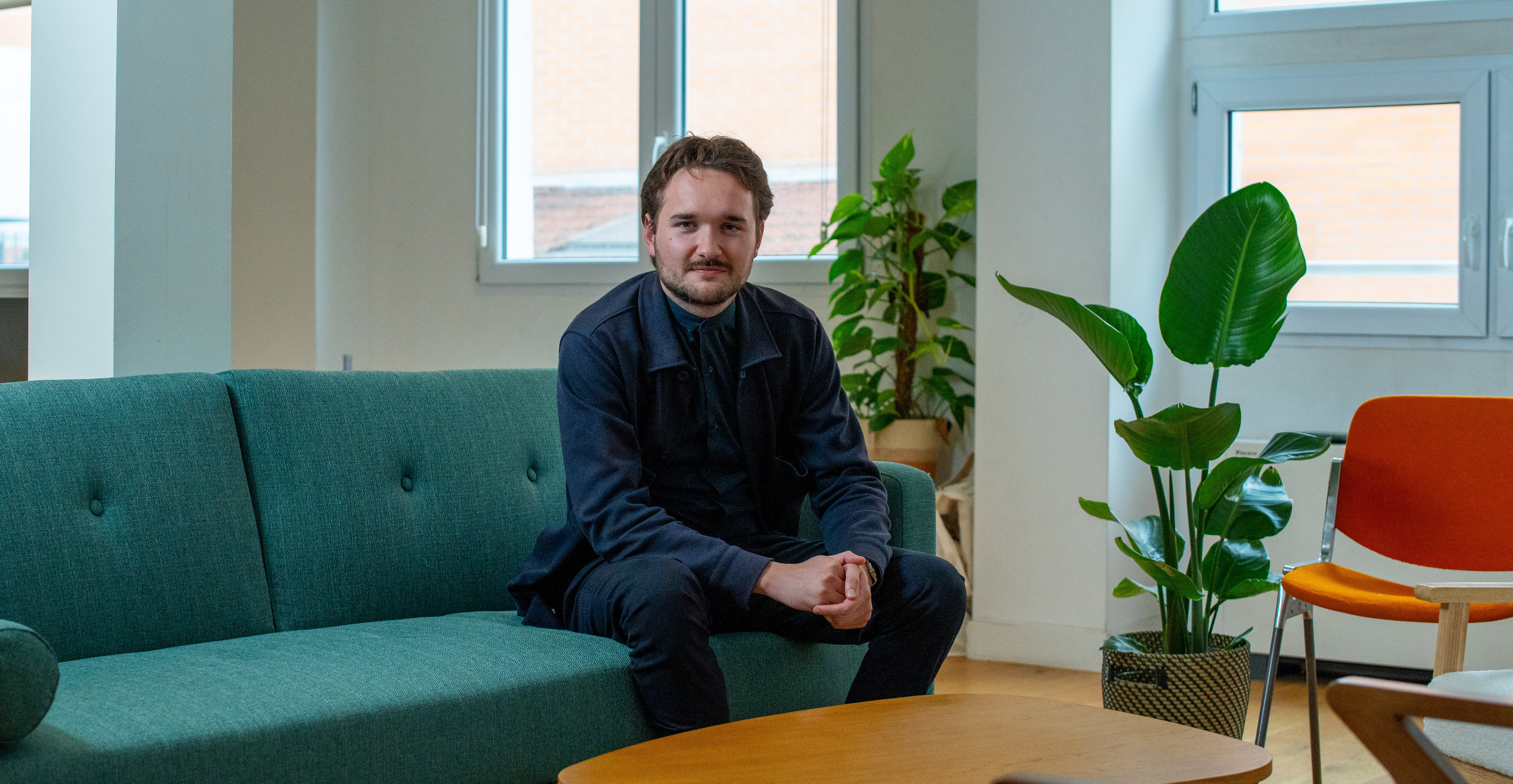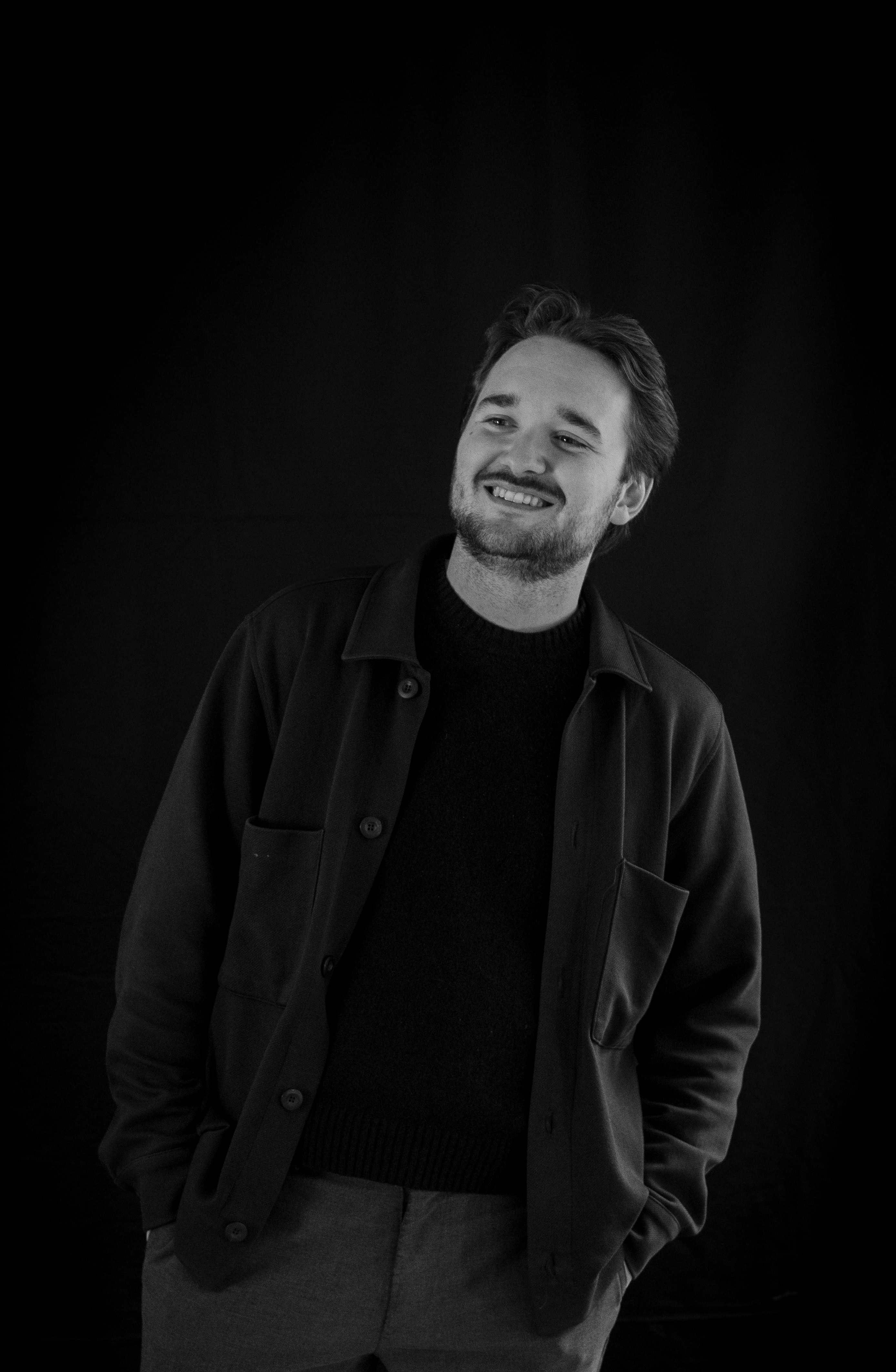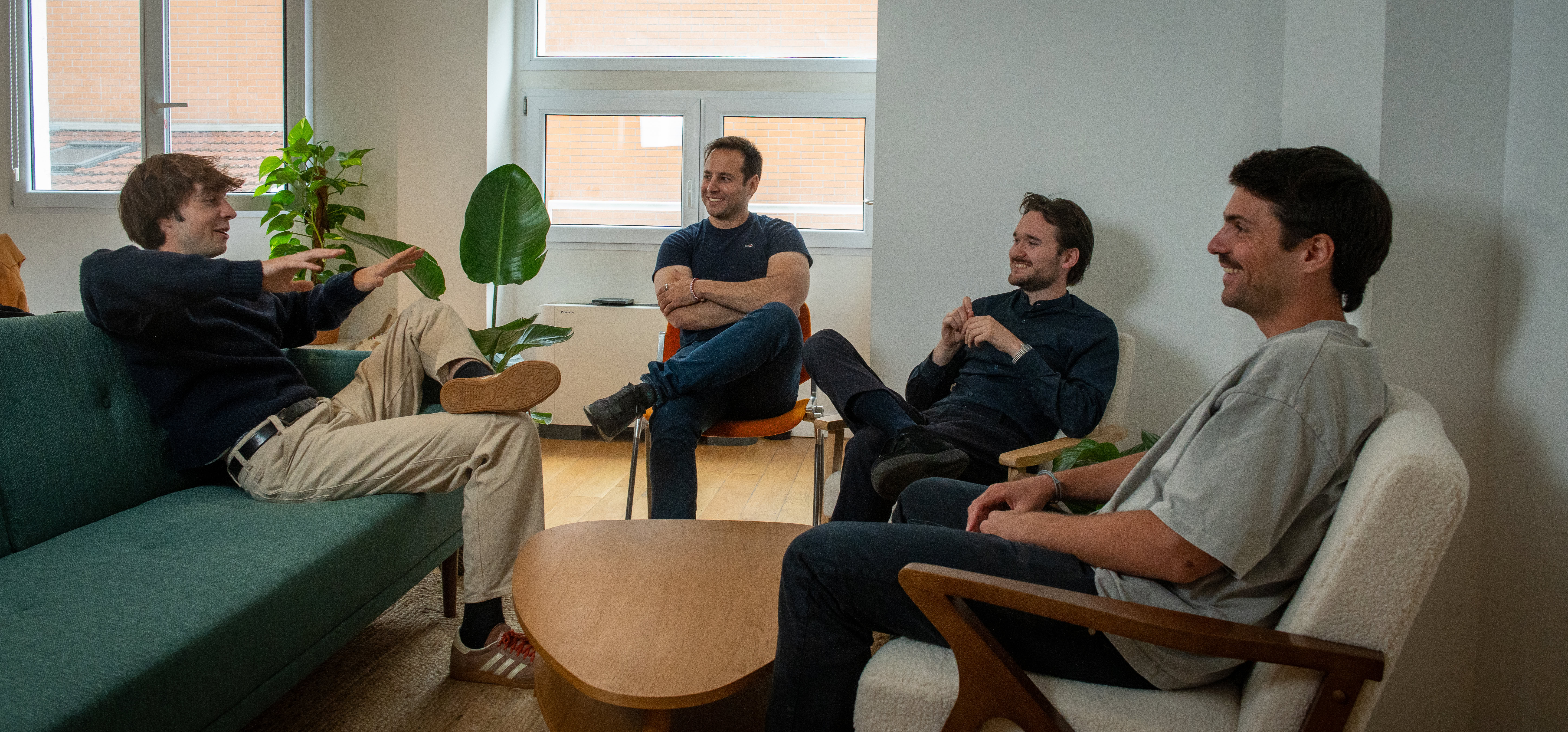Peter Starr (M.20): Building a world without mistakes with Freeda

An American via London and an HEC graduate, Peter Starr traded urban planning for tech entrepreneurship. With Freeda, the start-up he co-founded in 2024, he aims to revolutionize construction by automatically detecting errors in blueprints. A singular journey, driven by one obsession: to build better, faster, everywhere in the world.
“I told myself that one day I’d find a technology to improve this,” he recalls from Freeda’s Paris offices. His early career in urban planning was marked by hundreds of hours spent comparing blueprints with the specifications of oil industry giants. “It was the most mind-numbing job in the world. A door had to be exactly this size, a window exactly that size… And despite all that, there were always mistakes.” Out of this frustration, the idea for Freeda was born a few years later.
From New York to Jouy-en-Josas
Raised between New York and London within the French school system, Peter joined HEC in 2020, “right after Covid, when one day you’d be in a masked in-person class, the next day on Zoom. It was pretty chaotic.” His path was already atypical: a bachelor’s degree in urban planning at UCL, then two years in civil engineering at AECOM. “I was lucky enough to live and work in Hong Kong, the Emirates, Portugal… That constant cultural adaptation really helped me in entrepreneurship.”
At HEC, he quickly discovered the startup ecosystem. “I came from design, I knew nothing about the tech world. But during my gap year in Lisbon, working for an alumnus, Victorien Tixier, who was building ScorePlay, I discovered this ecosystem. That was the trigger. Seeing up close the jump from zero to one is a unique experience. You learn the struggles, the stress, but also the excitement.”
The birth of Freeda
Together with three co-founders – Augustin Perraud, Charles Albert Desbaux, and Mariano Rodriguez – Peter launched Freeda through the HEC incubator. Their promise: to streamline the pre-construction phase. “We help physical retailers, supermarkets, hotels save time and money on their openings by automatically detecting errors in their plans.”
Their technology relies on computer vision and AI. “The machine must first see that there’s an outlet in a bedroom, then reason: according to regulations, there should be three. If there’s only one, it’s not compliant.” With a half-smile, Peter adds: “The most common mistakes are toilets—their dimensions, according to accessibility standards. That’s our running joke.”
The HEC footprint at every step
From Lisbon to the incubator, from investment funds to first clients, HEC has always been part of the journey. “At every stage, there’s been an alum. It’s almost comical. Even our very first client came through HEC.”
Today, Freeda counts nine team members—“we’ll be twelve by the end of the year”—and brings together an international crew: American, French, Italian, Cuban. “Among the founders alone, we already have four nationalities, and that’s an incredible asset.”
Global ambitions
Based in Paris’s 11th arrondissement, Peter also moves between New York and the Middle East. “The goal is to become the global benchmark in our field. I want Freeda to be used everywhere: to build a 7-Eleven in Tokyo, a Burger King in Argentina, or an EV charging station in France.”
In the short term, the team is preparing a major announcement. “We’ve hired a PR manager to orchestrate communications. We’re starting now, we wanted to wait for fall to create a real buzz.”
At the same time, Freeda is betting on content with a video series, Expansion Masters, which tells the growth stories of brands like Big Mamma or PNY. “We want to showcase these phenomenal expansion journeys.”
From architect to tech entrepreneur
At HEC, Peter sometimes felt a little out of place. “No one had my background. Between the engineers, the finance people, the prep school kids… With my urban planning degree, I stood out. In the end, that helped me. It allowed me to evolve from architect to tech founder.”

When asked if he would take the same path again, he laughs: “My story is already written—there’s nothing to change.”
Published by Loane Gilbert


